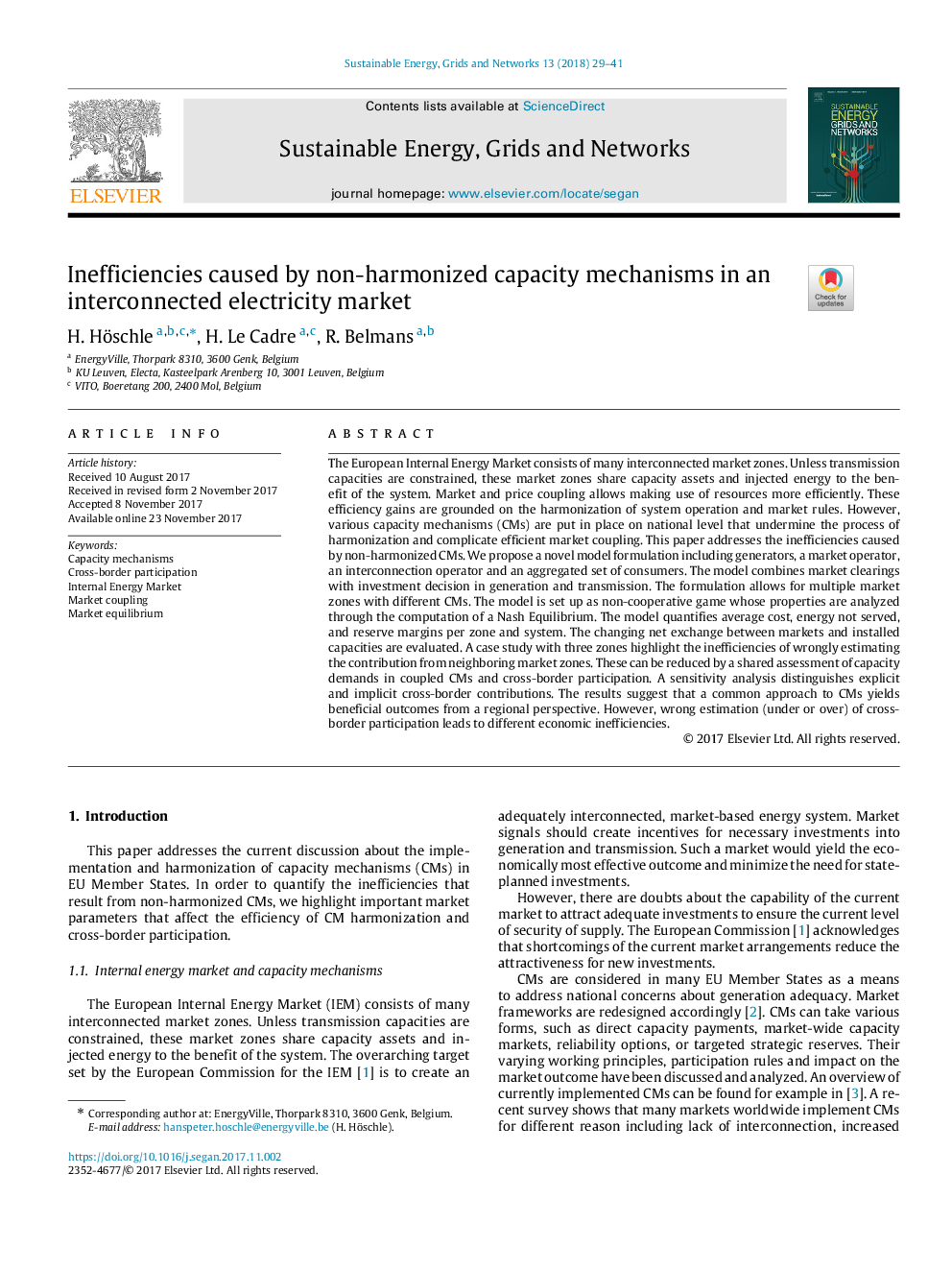ترجمه فارسی عنوان مقاله
ناکارآمدی ناشی از مکانیسم ظرفیت عدم هماهنگ در بازار برق متصل
عنوان انگلیسی
Inefficiencies caused by non-harmonized capacity mechanisms in an interconnected electricity market
| کد مقاله | سال انتشار | تعداد صفحات مقاله انگلیسی |
|---|---|---|
| 135384 | 2018 | 13 صفحه PDF |
منبع

Publisher : Elsevier - Science Direct (الزویر - ساینس دایرکت)
Journal : Sustainable Energy, Grids and Networks, Volume 13, March 2018, Pages 29-41
ترجمه کلمات کلیدی
ظرفیت مکانیسم، مشارکت فرامرزی، بازار انرژی داخلی، پیوند بازار، تعادل بازار،
کلمات کلیدی انگلیسی
Capacity mechanisms; Cross-border participation; Internal Energy Market; Market coupling; Market equilibrium;

